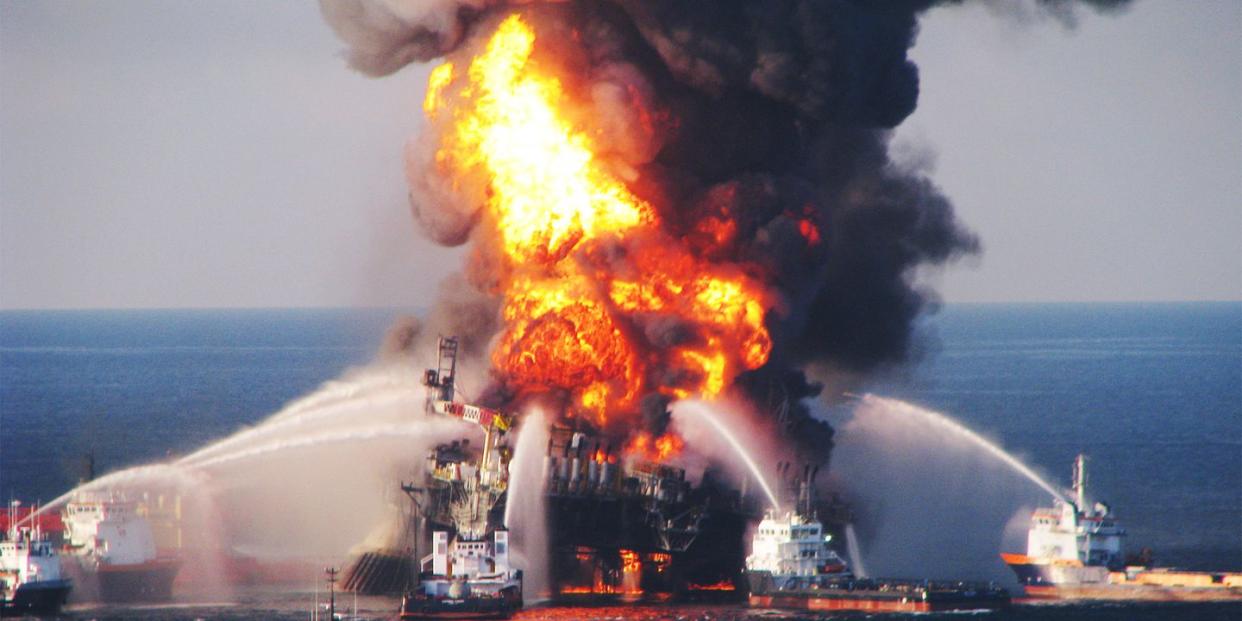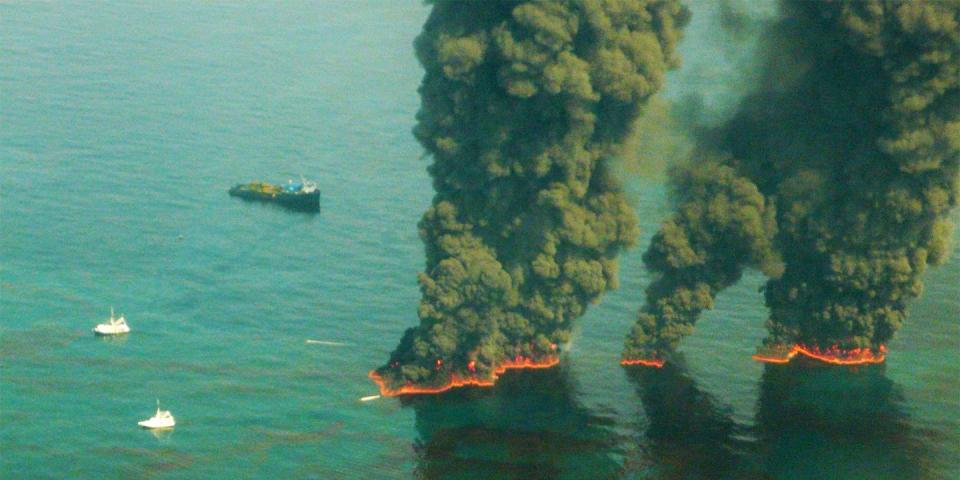Why We Learned Nothing From Deepwater Horizon

One of the 21st century newspeak words that particularly makes me smile is the notion of a “teachable moment.” Some gargantuan news story breaks - an exotic disease breaks out in Houston, a gunman slaughters small children in Connecticut, an oil rig detonates in the Gulf of Mexico - and there simply is nothing going on in the news for several days. Once the initial media supernova cools, however, we get several more days of What Lessons Can We Take from this, our latest “teachable moment.”
Solutions are proposed, some half-daffy, some utopian, and some simply impossible. Some of them make a kind of sense, though, but then the event sinks into the morass of our current politics and its significance is slowly suffocated while, sooner or later, something else comes along and we have another “teachable moment” from which, ultimately, we learn nothing. No progress is permanent, no achievement lasting. That is the lesson born in the great political retrenchment in the 1980s, when the retrograde was made new again, and it is the only lasting lesson that has been taught, over and over again, through the increasingly volatile politics of the age.
On April 10, 2010, the Deepwater Horizon oil rig exploded and sank in the Gulf of Mexico, 42 miles off the coast of Louisiana. Eleven people died. Oil belched into the waters of the Gulf until the end of July, some 3.19 million barrels of it. The dispersant used on the oil increased its toxicity.

The full impact of the spill is still not known but, in the aftermath, in the teachable moment, the country seemed to understand that something had gone terribly wrong in the way we regulated the extraction industries in delicate ecosystems. The Obama administration enacted new regulations regarding the oil industry’s obligation to deal with old and obsolete drilling platforms. Over the six years after the BP catastrophe, the Obama administration fought for and won a new regulation mandating increased inspection of so-called “blowout protectors,” the devices of the type that failed at Deepwater Horizon.
Lessons learned. A teachable moment fulfilled. A lasting achievement. Until, of course, the next presidential election, because all presidential elections, when the White House changes hands, are now Year Zero. From The New York Times:
While attention has been focused on President Trump’s disputed decision in January to reverse drilling restrictions in nearly all United States coastal waters, the administration has also pursued a rollback of Obama-era regulations in the Gulf. Those rules include safety measures put in place after the explosion and sinking of the Deepwater Horizon rig in 2010, a disaster that killed 11 people and resulted in the largest marine oil spill in drilling history.
Smaller oil and gas companies, many backed by Wall Street and private equity firms, say they need the relief to survive financially, and the top safety official at the Interior Department appointed by Mr. Trump has appeared an enthusiastic ally.
“Help is on the way, help is on the way,” the official, Scott Angelle, said in September at a gathering in Lafayette, La., of oil and gas executives from so-called independent companies, which focus on drilling alone rather than the extended drilling-to-gas-station operations of bigger competitors. But an analysis of federal inspection data by The New York Times found that several of the independent companies seeking the rollback, including Energy XXI, had been cited for workplace safety violations in recent years at a rate much higher than the industry average. Their offshore platforms suffer in some cases from years of poor maintenance, as well as equipment failures or metal fatigue on aging devices, records show.
By now, and especially in the case of the Interior Department, we should all know what’s coming: officials put deliberately in place to hinder the operation of their departments or actively to convert them into vehicles the purposes of which are directly opposite of those for which the departments or agencies were intended originally.

Meet Scott Angelle, the head of Interior’s Bureau of Safety and Environmental Enforcement.
Mr. Angelle has close personal and recent ties to the oil and gas industry, particularly the smaller companies seeking his intervention. Earlier, as a state official, he worked with them to end a temporary moratorium on new offshore drilling imposed by the Obama administration after the Deepwater Horizon accident. Now he is the top official at the Interior Department’s Bureau of Safety and Environmental Enforcement, a division created under President Obama to toughen safety standards and enforcement in offshore drilling because of problems exposed by Deepwater Horizon. Mr. Angelle spent his first months on the job, records show, traveling between Washington, Texas and his native Louisiana to meet with executives at most of the top offshore oil companies, including some repeatedly cited for safety violations. During the gatherings, most of which were behind closed doors, he asked for suggestions about how federal safety and environmental rules should be rewritten. Sometimes he offered up his cellphone number, urging attendees to call rather than send emails or text messages, which could be subject to public records requests.
As the Times story explains, we now have smaller companies, largely owned by hedge-fund desperadoes, buying up old drilling platforms in the shallower waters of the Gulf because there no longer are any regulations, nor anyone minding safety at the Interior Department. Many of these smaller companies have shoddy safety records themselves.
Approximately 240 platforms in the shallow waters of the Gulf, serving over 2,000 oil and gas wells as of last year, are listed by the Interior Department as “idle iron.” This means that they are severely damaged, not operating and no longer economically viable, and that they pose environmental and safety hazards. Most of the platforms are controlled by independent companies like Energy XXI and are decades old.
Even as safety has improved for the industry as a whole, some independent operators have lagged significantly behind, the records show. Renaissance, which produced 1.5 million barrels last year, as well as 3.8 billion cubic feet of gas, received 47 safety warnings or citations in 48 inspections in 2017. Among these were 20 orders to immediately shut down malfunctioning or unsafe equipment on offshore platforms. Overall, Renaissance had a violation ratio that was nearly twice the average, according to a Times analysis of agency data obtained through a public records request.
One of these things is going to collapse, or blow, or leak, and the vain and impotent news cycle of the teachable moment will begin all over again. And from the next teachable moment we will learn nothing, because that’s the only thing the country has decided is worth knowing.
You Might Also Like


